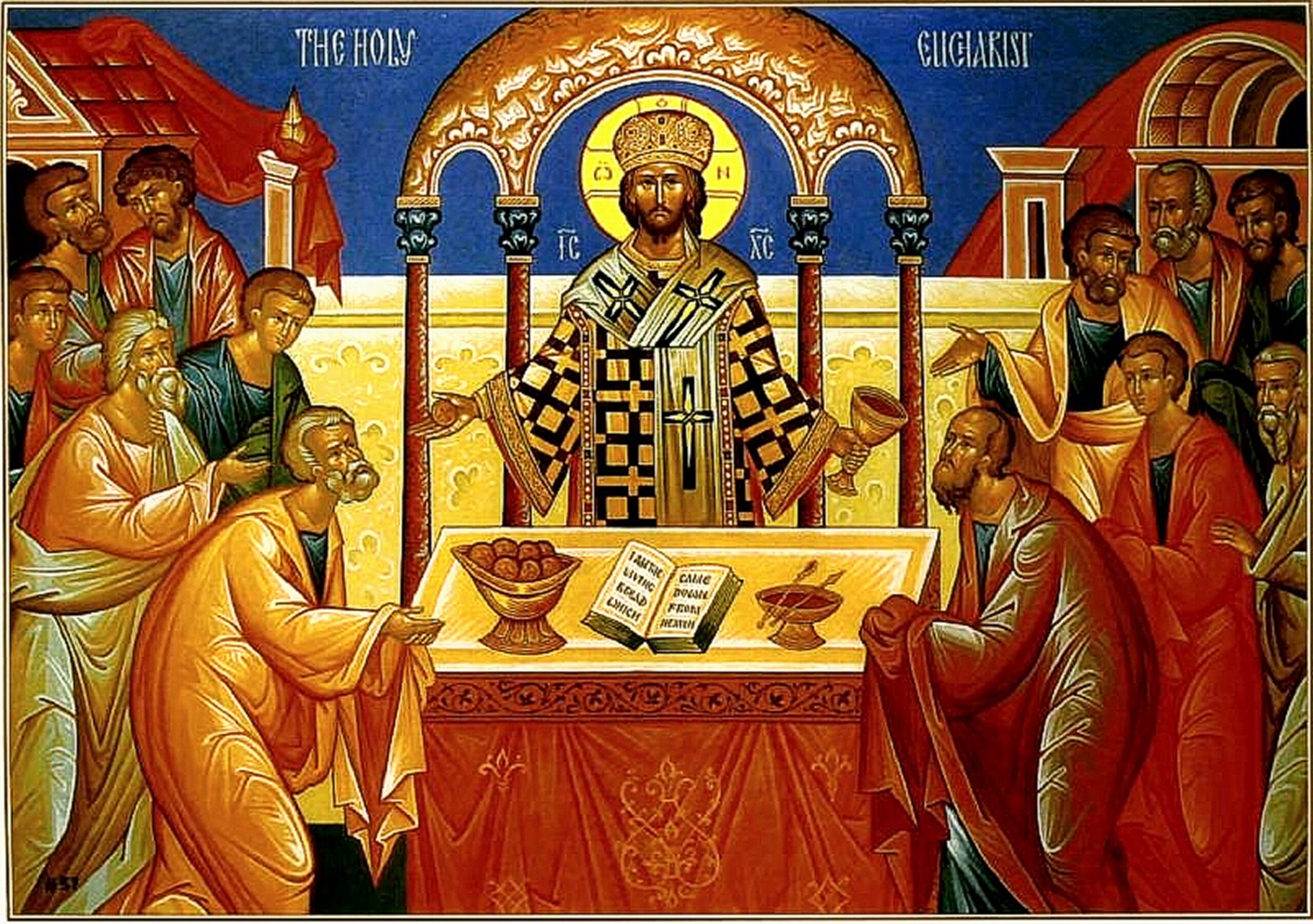And He will come to render to each according to His works
(Divine Liturgy of St. Basil the Great, p. 28)
—
For He will render to every man according to his works: to those who by patience in well-doing seek for glory and honor and immortality, He will give eternal life; but for those who are factious and do not obey the truth, but obey wickedness, there will be wrath and fury.
Romans 2: 6-8
Christ is Risen!
We took a break from our series “The Consummate Prayer: Reflections on the Divine Liturgy of St. Basil the Great” for Holy Week. Even though we have completed the Lenten journey, this is certainly a worthy series to finish off. Thus, we will continue to reflect on the Divine Liturgy of St. Basil throughout this Paschal season.
Because of the death and Resurrection of Christ, the door to Paradise is now open for every human being, in the sense that each of us has the potential to go to Paradise. As we discussed in the previous reflection, in the icon of the Resurrection, we see Adam and Eve and all the important Old Testament figures who preceded Christ consigned to Hades. The icon doesn’t depict Christ emerging from the tomb but rather going to Hades and breaking the bars and gates that imprisoned everyone who had died before His Resurrection. Because before Christ, that door was not open, not for even the most righteous of people. The door for us is now open. However, between life on earth and eternal life is the Last Judgment.
In Romans 2:6-8, St. Paul writes about how the Lord “will render to every man according to his works: to those who by patience in well-doing seek for glory and immortality, He will give eternal life; but for those who are factious and do not obey the truth, but obey wickedness, there will be wrath and fury.” This is a pretty ominous warning; one we should pay heed to in our contemporary world. Depending on how one reads Romans 2:7, we might think that working for our own glory or immortality in an egotistical way is okay. That’s not how to read this. St. Paul is not advocating self-aggrandizement or getting one’s name put on the side of a building to be remembered forever. Rather, St. Paul is teaching us that we should be seeking the glory that comes from God, to be honorable and Godly in our behavior, and to meditate on the things of Heaven. If we do these things, we will be in good stead to receive a good judgment and inherit eternal life.
In Romans 2:8, St. Paul outlines three things we ought not to be doing—first, being factious. To be factious is to be divisive and polarizing, not looking for unity. To not obey the truth is to lie. And to obey wickedness is to seek out that which is evil, rather than what is good. If we are doing these things, we will suffer wrath and fury. This is the ominous warning, as it seems as though so many in our world are obsessed with division, dishonesty and evil, the things that point in the direction of wrath and fury and away from eternal life.
In Matthew 25: 31-46, Jesus tells His disciples about the Last Judgment, when the Son of man will come in His glory and gather everyone before Him and separate them like a shepherd separates the sheep from the goats. The sheep, those on the right hand, will be given eternal life. The goats, those on the left hand, will inherit eternal punishment. Jesus is very simple, and very succinct, when He describes the things that we need to do to inherit eternal life—feeding the hungry, giving drink to the thirsty, welcome the stranger, clothing the naked, visiting the sick and the imprisoned. Nothing could be more clear and direct. We will be judged on these things.
The preceding parable in Matthew 25: 14-30, is called the “Parable of the Talents,” and also speaks about the judgment of Christ. In this parable, the judgment will be based on whether one used the talents He was given by Christ, or whether one decided instead to bury them in the ground.
The interesting thing about both these parables is that Christ doesn’t speak in figurative language that is difficult to interpret. He speaks in plain language to help us understand there is going to be a judgment and it will be based on the stewardship of our lives—how well and what we did with what we have been given.
In the world today, there seems to be two interpretations of God’s judgment—one is to judge ourselves according to our standard, i.e. in the eyes of God I’m sure I’ve done enough; and two, to think that God is politically-correct and won’t condemn anyone. I believe both thoughts to be wrong, because either thought puts US on the judgment seat rather than God. It is God who will sit in judgment of us, and judge us according to HIS standard, not ours. And as both Christ and St. Paul have stated in the Bible in multiple places, there will be a judgment where some will be condemned, and others will receive eternal life.
